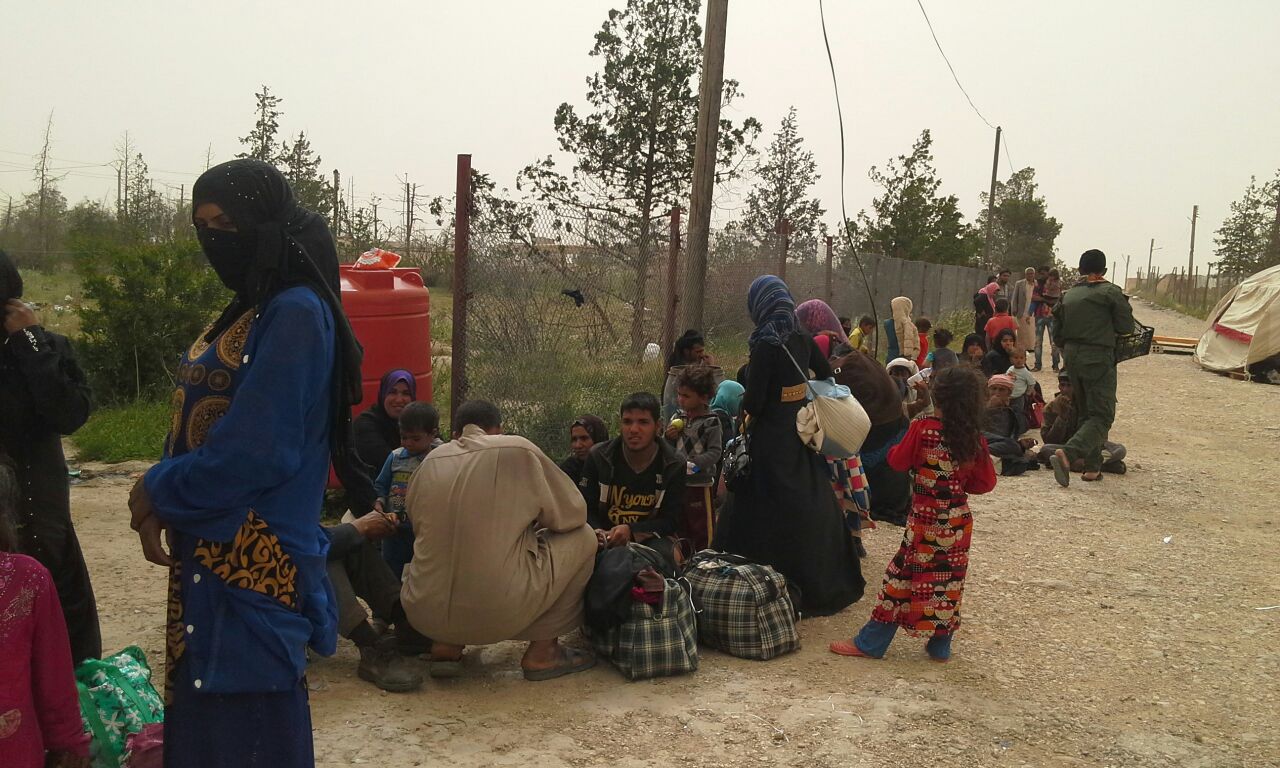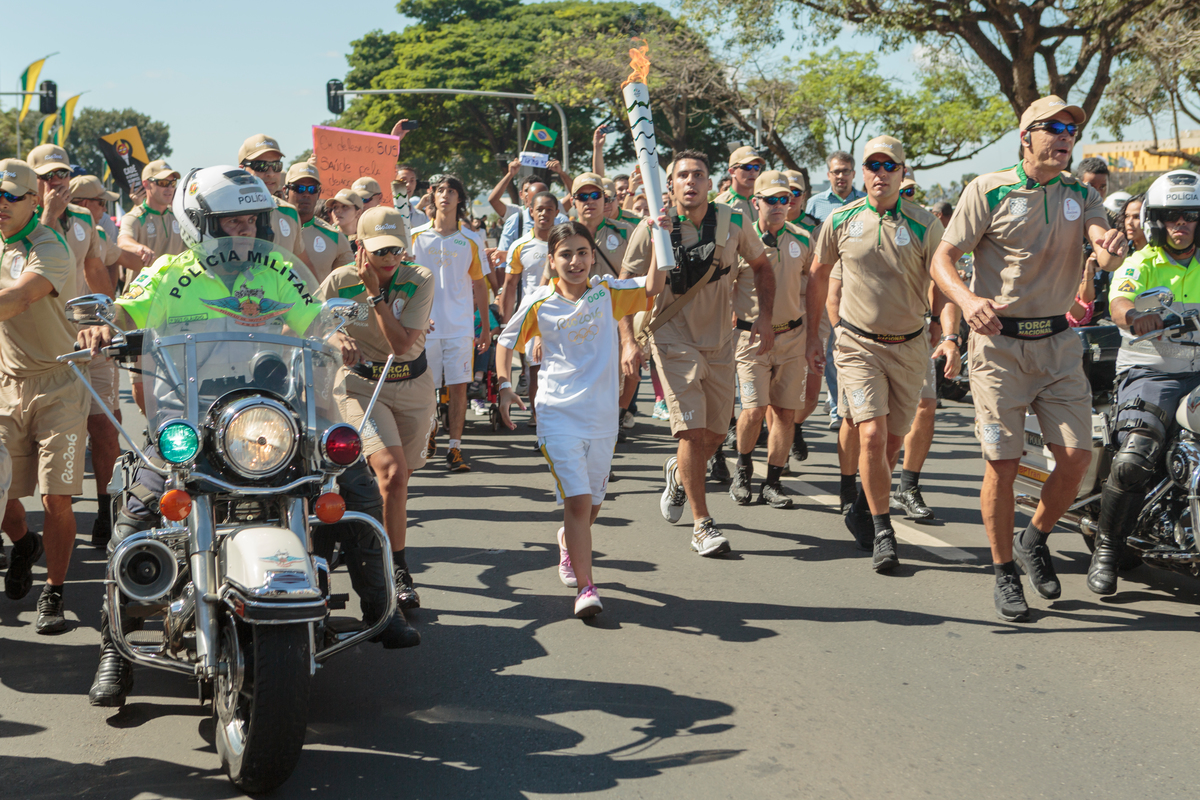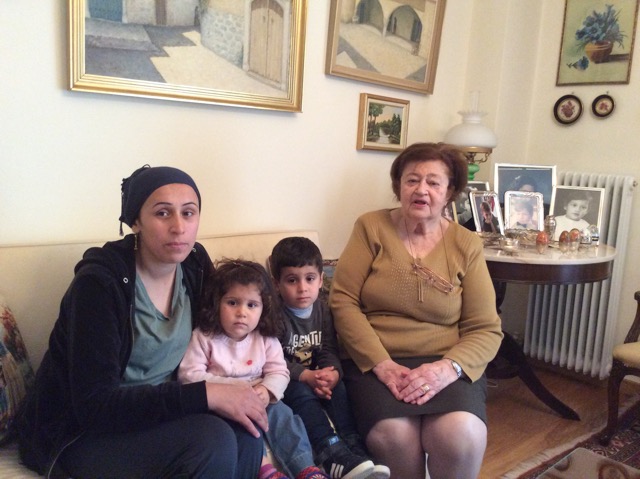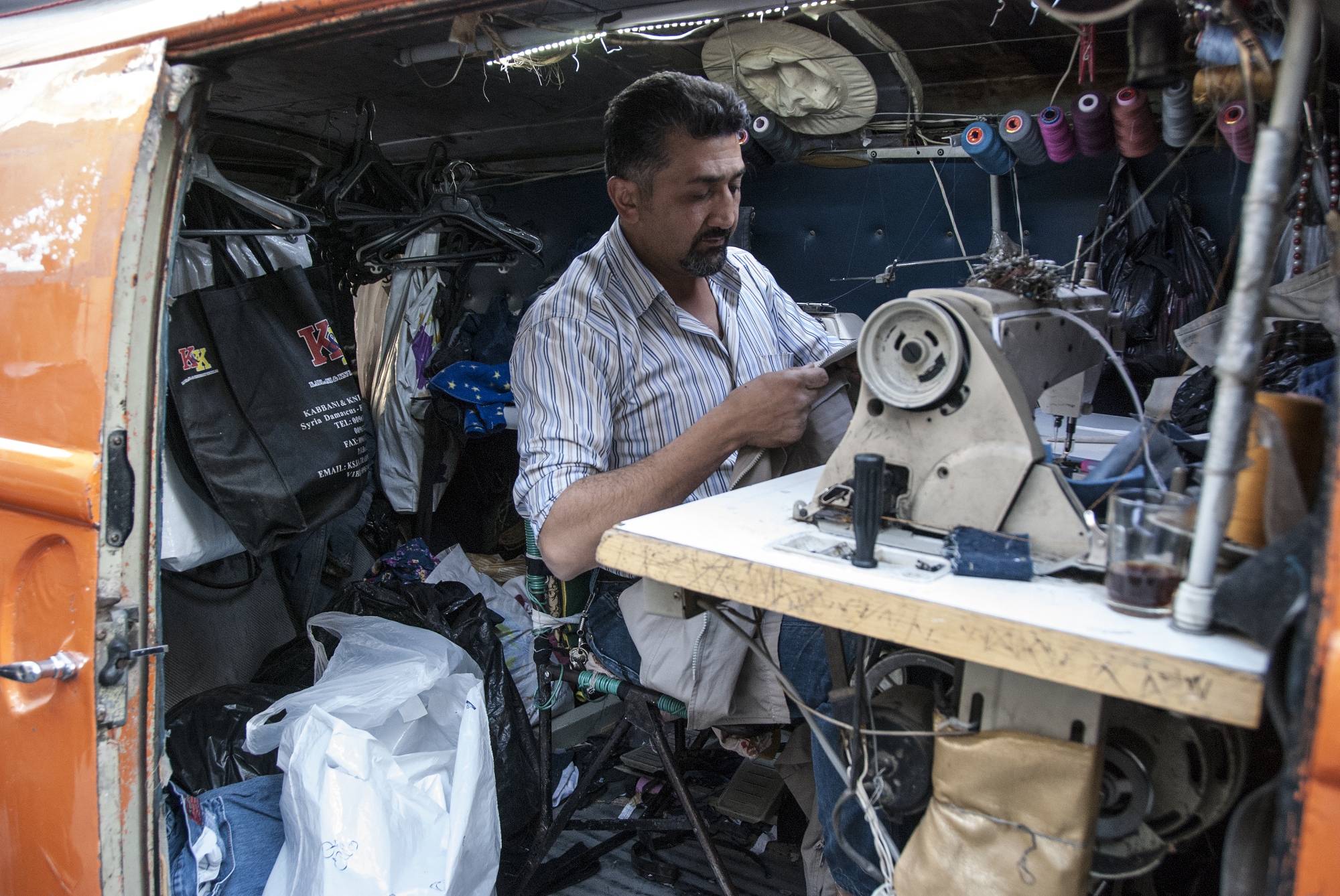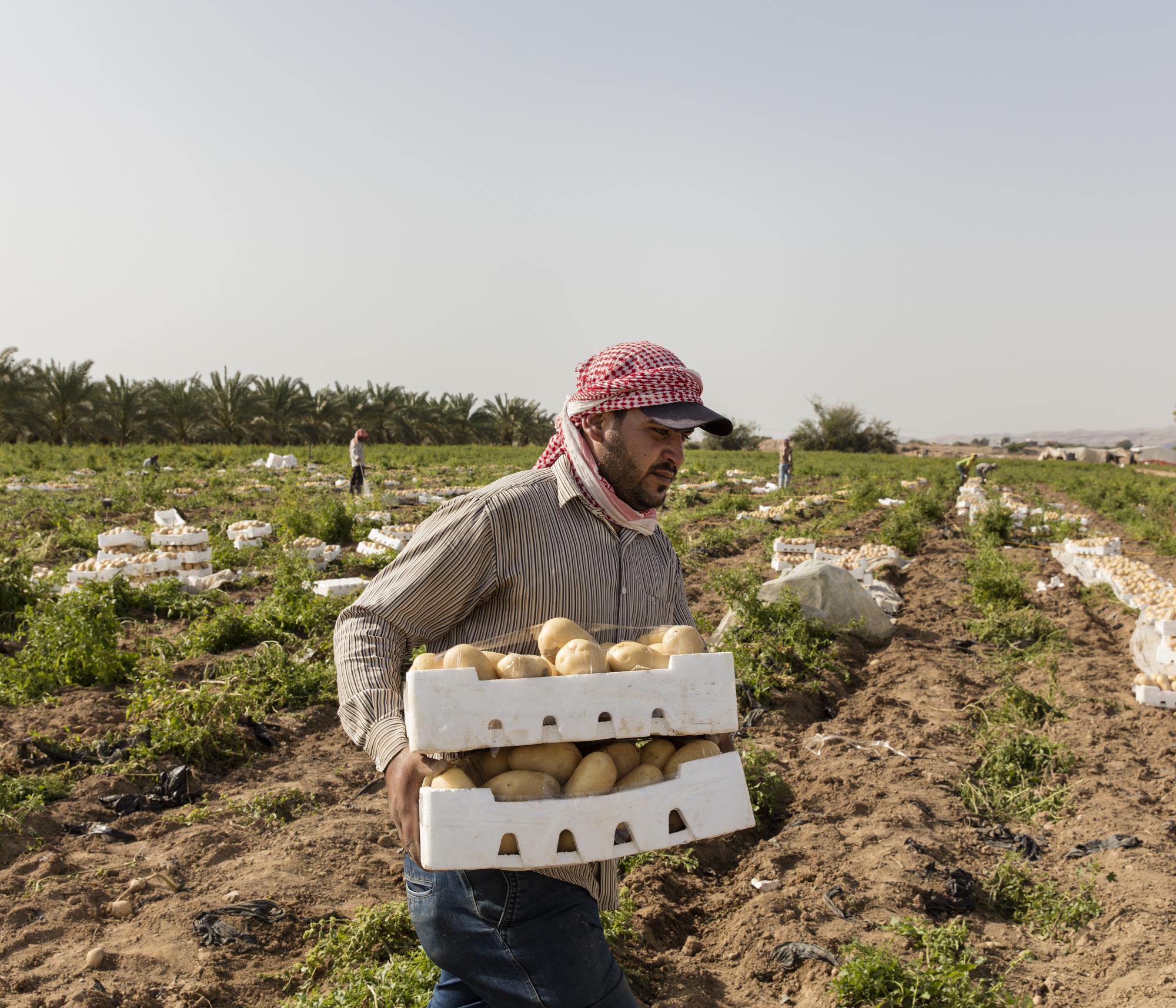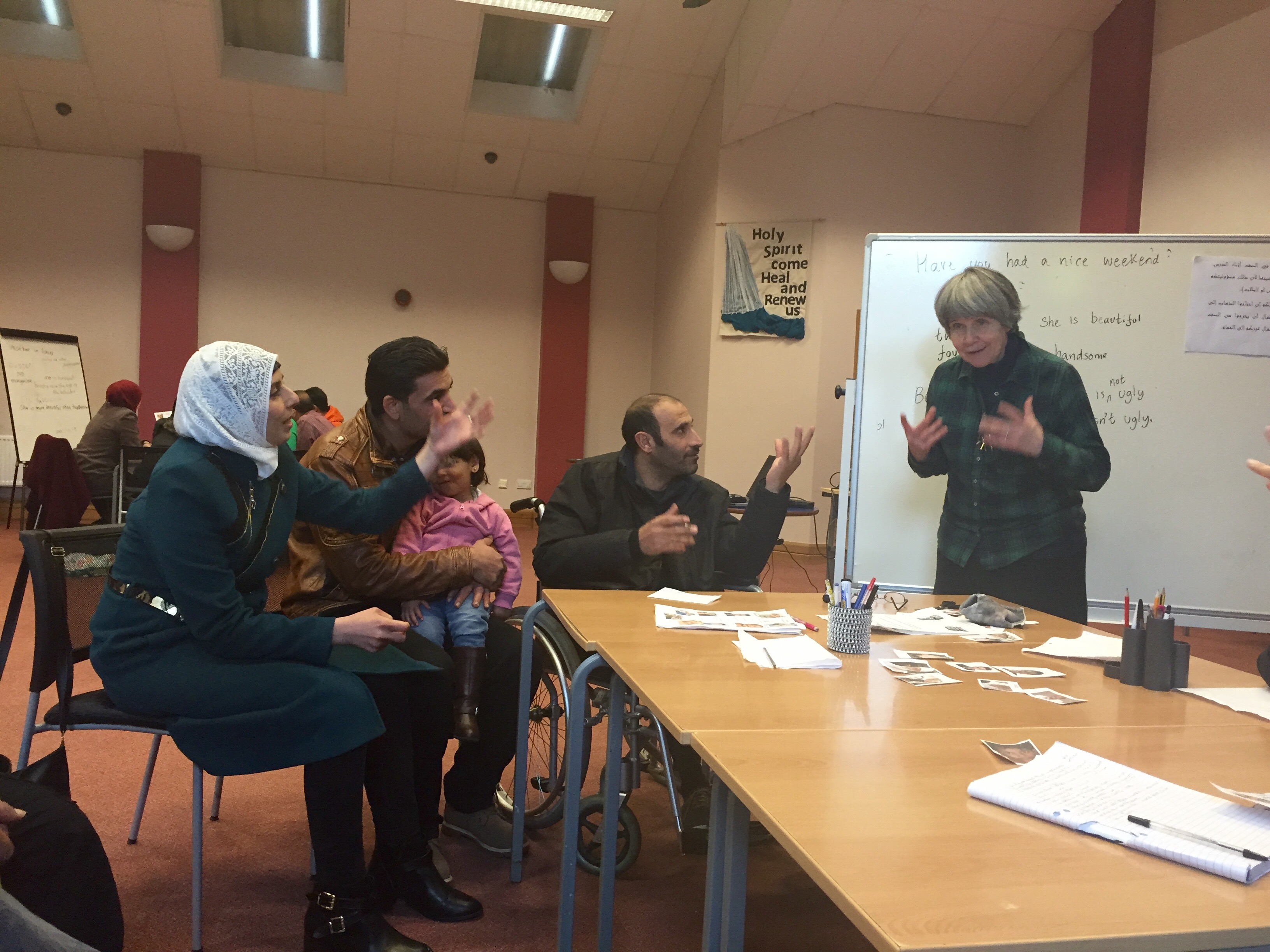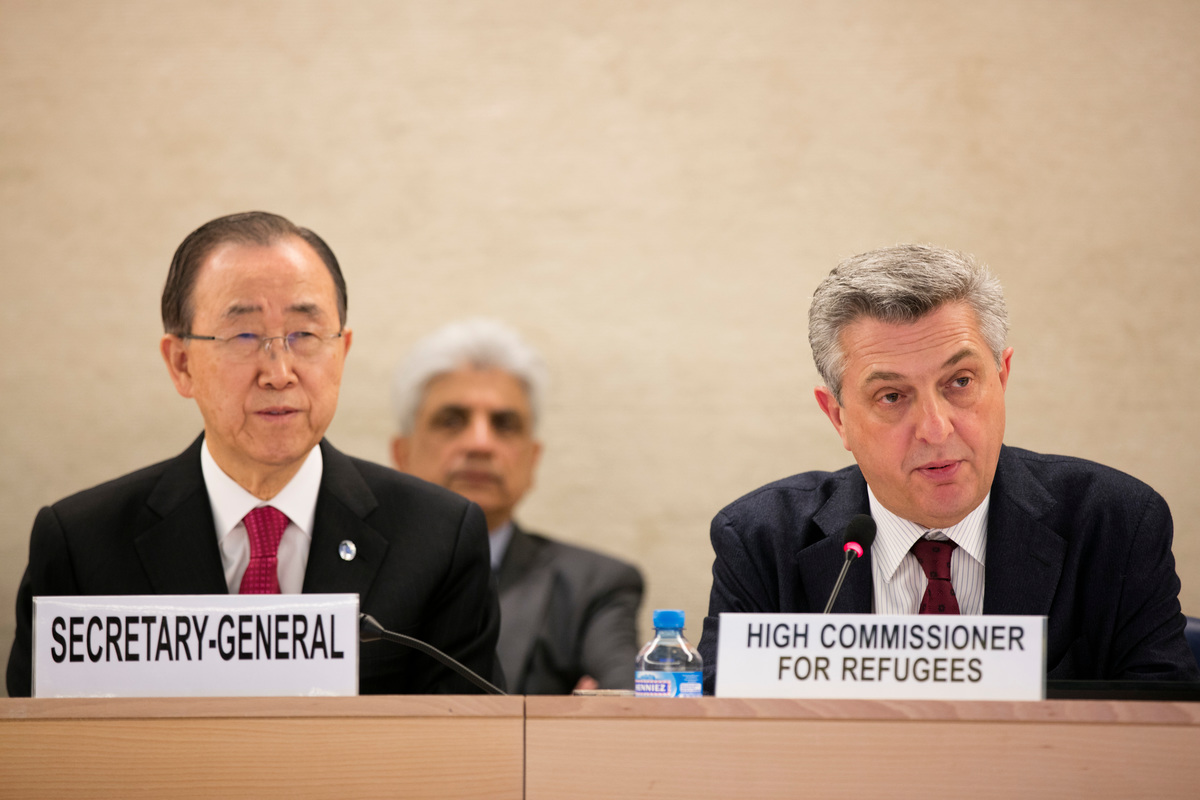UNHCR assessment team finds dire living conditions in Homs
UNHCR assessment team finds dire living conditions in Homs

GENEVA, November 30 (UNHCR) - Staff from the UN refugee agency have visited Homs this week and said thousands of displaced people are living in dire conditions in the conflict-battered Syrian city.
The UNHCR team, whose two-day mission ended on Thursday evening, said many people were staying in unheated communal shelters and they also reported that half of the city's hospitals were not functional and there were severe shortages of basic supplies ranging from medicine to blankets, winter clothes and children's shoes.
The team, led by UNHCR Representative in Syria Tarik Kurdi, also said the agency's partner, the Syrian Arab Red Crescent (SARC), had registered 250,000 displaced people in and around the city.
"During their mission, the team met SARC counterparts and briefed local officials on UNHCR's operations in the area, including the provision of non-food aid supplies," UNHCR spokesperson, Melissa Fleming, told journalists in Geneva on Friday. The team included UNHCR Syria's shelter coordinator to assess the feasibility to engage in shelter rehabilitation.
UNHCR, which has more than 350 staff in five locations across Syria, has been present since mid-November in the city, but has been providing assistance there through SARC since June. The team visited two communal buildings, one housing 70 families (400 individuals) and another one with more than 400 families, the largest such shelter in Homs.
"Local solidarity networks have been formed and are providing very organized help to local residents, but the needs are acute," said Fleming. "Many children have not been to school for the last 18 months. Some city hospitals have been converted into communal shelters and 60 per cent of Homs doctors have left, along with other medical personnel. There are serious shortages of medicine and medical equipment," she added.
With the onset of winter, UNHCR plastic sheeting is being used to cover open doorways and missing windows in collective centres, as well as to partition rooms. None of the buildings were heated, and there is a shortage of blankets, winter clothes and shoes for children.
During the mission, nine UNHCR trucks carrying urgent winter assistance arrived in Homs with 6,000 quilts, 12,000 sleeping mats, 13,000 winter blankets, 1,000 mattresses and 6,000 boxes of sanitary napkins. More aid supplies are scheduled for delivery in the coming days to complete relief shipment for some 15,000 people.
"We intend to further scale up our winter response with more deliveries of heavy blankets, quilts and mattresses. We are also identifying new humanitarian partners to expand our local distribution network," Fleming said.
The spokesperson added that UNHCR continued to work flat out to help Syrians who have fled to neighbouring countries. "In Lebanon, we are working with a recently formed inter-ministerial committee to better coordinate efforts to help Syrian refugees and affected Lebanese communities," she said.
UNHCR registered close to 7,000 refugees last week in Beirut, northern Lebanon, the Bekaa Valley and southern Lebanon, bringing the total number of those receiving assistance from UNHCR and partner agencies in the country to 133,349.
"Preparations for winter remain a priority," Fleming said. So far in November, UNHCR, the World Food Programme and other partners have distributed food vouchers, blankets, mattresses, carpets, heaters and, most recently, valuable fuel coupons to some 50,000 refugees.
Renovations on buildings and collective shelters to house refugees are also continuing, along with the provision of cash so refugees can make rental payments. Provision of mattresses, blankets and household items continues. All refugees live in Lebanon's towns and cities, not in camps.
In Jordan, arriving Syrian refugees continue to tell UNHCR they were targeted en route to the border. "UNHCR calls on all sides to ensure that civilians have access to safe passage," Fleming stressed. Refugees are citing generalized violence, targeted threats against individuals and their families, and a breakdown of basic services as the reasons they fled their country. Jordanian hospitals receive injured refugees on a daily basis.
This perilous journey is particularly tough for women and children, whom UNHCR staff report are often visibly traumatized. Women still recovering from childbirth are making the journey. On Thursday, a Syrian woman crossed into Jordan with a 12-day-old baby. "Many families are opting to sedate their children during the journey, they say, to keep them calm and quiet," the UNHCR spokesperson noted.
Also in Jordan, UNHCR has seen media reports of underage marriages involving Syrian refugee girls. The refugee agency has been working with partners to increase awareness among refugee families, religious leaders and others about this. Jordanian law prohibits marriage for those who are 18 or younger. An inter-agency assessment is being undertaken to determine the extent of the problem and identify future interventions.
Across the region, the number of Syrian refugees registered or awaiting registration in the region is now more than 465,000. Authorities estimate there are tens of thousands more Syrians across the region who have not come forward yet to register for assistance.

